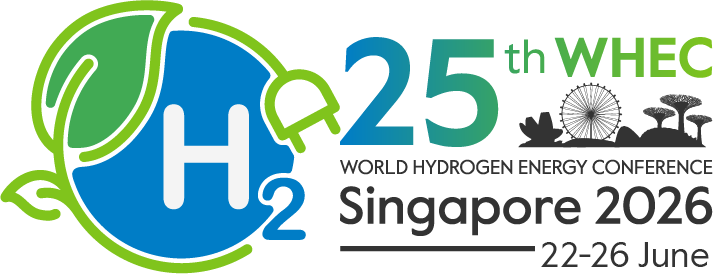Abstract Submission Guidelines
RULES FOR SUBMISSION
- Please read the submission rules before submitting an abstract.
- Abstracts will be collected by online abstract system.
- ABSTRACTS SUBMITTED BY EMAIL WILL NOT BE ACCEPTED.
- Abstracts must be received by the announced deadline. Abstracts received after the deadline will not be considered.
- Abstracts may be submitted for oral presentation, poster presentation or no preference.
- Presenting authors must be registered participants. Only abstracts of authors who have paid their registration fees will be scheduled for presentation.
- A single attendee can act as the presenting author for a maximum of 1 abstract.
- All abstracts should be submitted and presented in clear English with accurate grammar and spelling of a quality suitable for publication. If you need help, please arrange for the review of your abstract by a colleague who is a native English speaker, by a university specific publications office (or other similar facility) or by a copy editor, prior to submission.
- The submitter should have ensure that the patient consent is obtained before submitting the abstract.
- Only abstracts with results will be accepted for review. Abstracts stating “data will be discussed in the presentation” will NOT be accepted.
- Note: Abstracts that have been previously submitted to a domestic conference may also be submitted to WHEC 2026. However, those that have been submitted to an International conference may not be submitted again.
- The Scientific Committee will make the final decision as to whether the abstract will be accepted for oral or poster presentation, with consideration given to the author’s preference.
- Academic titles should not be used in author names.
- The abstract must not exceed 1000 words including references. Title, authors’ names, affiliations and tables and figures are not included in the word count.
- Tables and Figures must be referenced in the text and numbered in the order they appear. All tables and figure must be accompanied by a caption and list of abbreviations whenever appropriate (e.g., Figure 1: description /Table 1: description).
- The authors’ affiliation should be clearly indicated as follows: Department, Institution, City, Country (e.g., Department of XXXXX, University of XXXX, Istanbul, Turkiye). Please note that the country names should be spelled in English.
- Abstract title – Only capitalize the first letter of each word and limit the title to 25 words. Please submit symbols as words (e.g., Beta, Alpha, etc.).
- You may enter up to 6 keywords, separated by commas (e.g., word 1, word 2, word 3)
- Abbreviations and acronyms should be spelled in full and followed by the abbreviation/acronym in a parenthesis the first time they are mentioned in the abstract. E.g. Systemic lupus erythematosus (SLE) is a rare disease. SLE was diagnosed in 5 out of 10 patients…
- Abstract content must be scientifically valid, objective and balanced and contain no commercial promotional content.
Important Dates
Abstract submission deadline
27 February 2026
Abstract Notification
15 March 2026
Early Registration Deadline
31 March 2026
Submission Process
- If you have not received confirmation that your abstract has been submitted, please contact us. Do not submit multiple copies of the same abstract.
- For technical support or questions during submission, contact LookUs Information Services Ltd at Tel: +90 (216) 372 66 44 from 09:00 to 18:00 on weekdays (Istanbul time), or email [email protected].
- Register to the system using the “New User” link and create a new account.
- After signing up, follow the instructions provided on the page. Please read these messages and instructions carefully.
- A confirmation message will be sent to the corresponding author’s e-mail address after the abbstract submission is completed. Please keep this confirmation email. If this email doesn’t appear, check your spam folder.
- The entire evaluation process can be tracked through the corresponding author’s account and e-mail.
Abstract Categories
1. Fuel Cells & Electrolyzers Technologies
- Fuel Cells: PEMFC, PAFC, AEMFC, MCFC, SOFC and other types.
- Electrolyzers: PEMEC, AEMEC, SOEC and other types.
2. Hydrogen Production
- Methane pyrolysis, Photolysis and Photo-electrochemical process
- Biological Methods and Biohydrogen
- Nuclear and Power-to-X (hydrogen, syngas, ammonia, and other synthetic fuels)
- Low-carbon hydrogen technologies (Advanced SMR, POX, ATR, etc. with CCS/CCUS)
3. Hydrogen & Hydrogen Carriers Transport and Storage
- LOHC
- HENG, mixture fuels, ammonia, methanol, etc.
- Metal/Chemical Hydrides
- LH2 and Cryo-compressed hydrogen
- Other hydrogen carriers
- Hydrogen embrittlement and related material challenges
4. Integrated Hydrogen Energy Systems
- Internal Combustion Engines, Gas Turbine Engines & Hybrid Systems
- Combustion (Hydrogen, Ammonia, etc)
- Environmental Impact and Sustainable Development
- Other industrial applications (technology)
5. Policies, Economies, Industries, Test Bedding
- Hydrogen Strategies, Policies, and Social Dimensions
- Hydrogen safety, codes, standards, and regulations
- Hydrogen Industry, Test bedding, Commercialization and Marketing
- Hydrogen economy, logistics, infrastructure, and applications
- Asia/ASEAN H₂ – Industry & government
- Roadmap towards global decarbonization: hydrogen international associations
